A look into the sole Studio Theatre production of fall term.
On the evenings of October 16 and 17, students trickled into the Art Bowl by the Center for Fine Arts to see Snapshot, an anthology of monologues and two person scenes that were produced by Knox College’s student-run Studio Theatre.
Masks were required by performers, ushers and attendees alike, and folding chairs and mats were set six feet apart for audience members to observe social distancing guidelines.
Each scene is a stand alone theatre piece, each of them connected by themes of American patriotism and morality, weaving in comments on capitalism and different types of relationships.
Another throughline amongst the theatrical pieces is the monument Mount Rushmore. The cast and crew took no risks in observance of the pandemic: auditions for Snapshot were held on Google Meet, and the final performances were presented outside.
“Health and safety was our number one concern,” said senior John Harden, the production manager of this year’s Theatre Advisory Board.
Doing the play live was important throughout the process, said Harden, but not to the extent that Studio Theatre would compromise anyone’s health. He and Professor of Theatre Liz Carlin-Metz used guidelines from Knox, the CDC and the state of Illinois to inform their health rules.
Actors kept their masks on for all performances, even in the case of monologues, though, Harden said, “if they’re monologues, we can guarantee that they’ll be six feet from the audience.”
“The mask definitely was a little challenging,” said sophomore Kamille Sloane, who performed a monologue and a scene in Snapshot. “I had to be more expressive with my body because you couldn’t. see my face really.”
Sloane practiced her scenes with one other scene partner and their director in a common room of Williston, with masks on and observing distancing. They had no trouble with physical distancing in the scene, in which the two actors sat on boxes across the stage from each other.
For junior Hannah Hamlin, who was also in a monologue and a scene, physical distancing was a constant concern in order to keep the theatre department out of criticism about safety. She mainly rehearsed outside.
“It was definitely something that was always on my mind to be like, make sure you’re distant, make sure you’re apart, both onstage and offstage,” said Hamlin.
Senior Veronica Langley, one of the four directors of Snapshot, rehearsed with her casts on Google Meet and outside. She led four scenes, each one rehearsing for two one-hour sessions each week.
“By the end I often was just completely burnt out, but grateful to my actors for being patient with me and flexible, and taking to direction really quickly,” Langley said.
Langley said that the show was so important to her in part because she had been so cooped up due to COVID-19 regulations.
The Knox College theatre department has sustained critiques about the social relevancy of their productions, with multiple shows being canceled in the past few years due to offensive themes. Snapshot, originally published in 2003, seems to avoid these past critiques.
“Personally, speaking from myself, I think we are evaluating who we are as a nation much more right now, especially during the Trump presidency, than any other time in the past thirty years,” said Harden.
“And so to take this icon of Americanness—Mount Rushmore, faces carved into Native American land, it’s such a potent image of just what this nation is—and to see it both reinforced in some of the plays and taken down in some of them, and to be completely ignored in others, I think it provides a very good look into the different people in our nation and stories that can be told,” he said of the various scenes in Snapshot.
Hamlin said that “something that Snapshot lacked a little bit is that conversation, even though it definitely questions the idea of the prejudices of the monument, but it doesn’t address the idea of, well, is the monument even a thing that should exist, or why aren’t we addressing the people that we took that mountain from and remodeled it?”
Both Hamlin and Sloane said they struggled to connect with their characters initially, because their views did not always express their own.
Sloane played a 911 operator during the 9/11 attacks in her scene, and in a monologue played a man who is attracted to the U.S. presidents.
“That helplessness of not being able to help in person just gave me a new appreciation for what they do,” said Sloane of her 911 operator role. “Of course you want to help, but the only way you can help is to just keep on doing your job.”
Sloane thought about the feeling of admiring someone from afar to connect with the character in her monologue.
“I thought a little bit about how, as a black woman during this time, playing a character who loves the presidents who I know had heavy involvement in slavery and oppressing black people—and then like Mount Rushmore has some torrid beginnings too, like in terms of the Native American community, the black community—so I think this was a good play to do right now, just ‘cause, I don’t know, it kind of highlighted that patriotism and maybe just made us think about it more,” Sloane said.
“It was definitely figuring out how to connect with people who are outrageous, at the same time as, if you actually listen to them, they’re making good points,” said Hamlin of her characters. One of which wanted face surgery to look as ‘immortal’ as a president, and one who questioned the ‘antique ideals’ of historical thought.
While Knox Theatre has produced shows this term, many arts based industries that depend on in-person experiences and have suffered uniquely during COVID-19.
“I follow a lot of actors on Instagram, and I see how the arts have been hit so hard by COVID-19, and I don’t think I would recognize that if I didn’t follow them,” said Sloane.
“We will have had the chance to come up with so many awesome ideas to bring to life when we have the chance to do it,” said Langley of the theatre industry during the pandemic. “This is our time to really develop stuff and really come up with these ideas.”
Sloane, Hamlin, Langley and Harden were all glad the performance was held live.
“[Live theatre is] a really beautiful and immersive experience, whether you’re in the production or whether you’re in the audience,” said Sloane. “We need that kind of slice of happiness and being able to step outside of the world a little bit right now. Even if it’s socially distanced and with masks, it’s still a beautiful experience that we need at this time.” Harden describes live theatre as “the most empathetic art you can put on.”
Snapshot is the only Studio Theatre production of the term. This weekend, Knox’s main stage theatre airs Dracula, a radioplay on area radio stations and on October 31 at 7:30p.m. on Knox’s radio station, the WVKC.

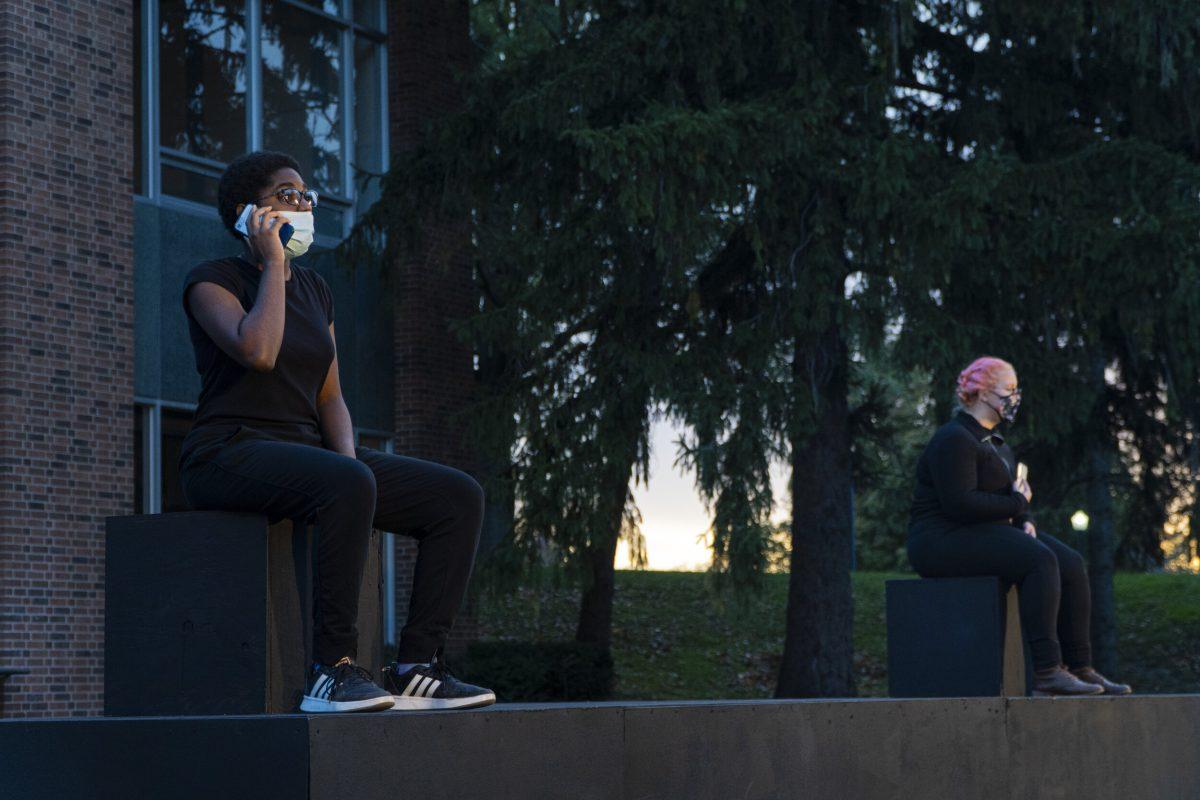
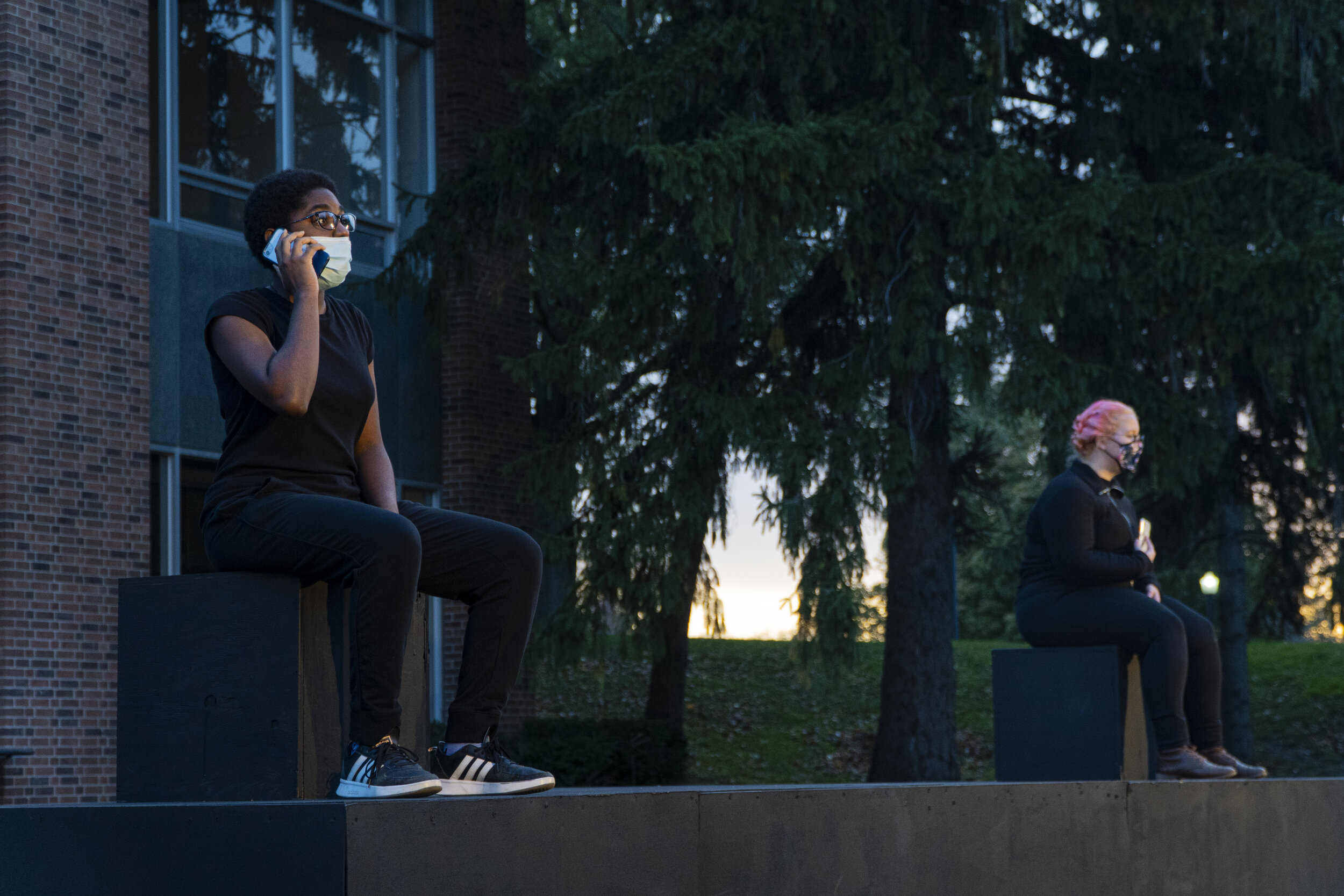
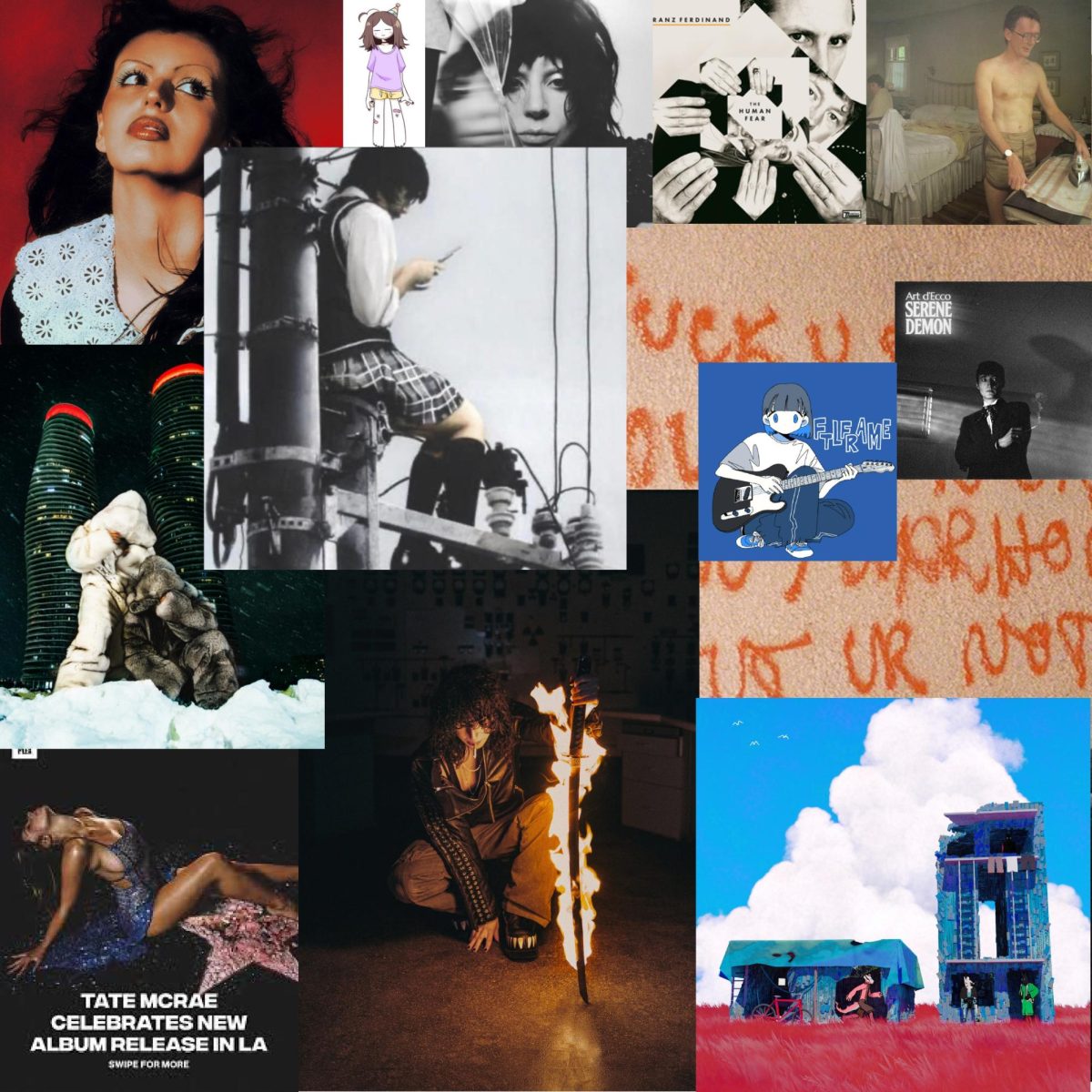
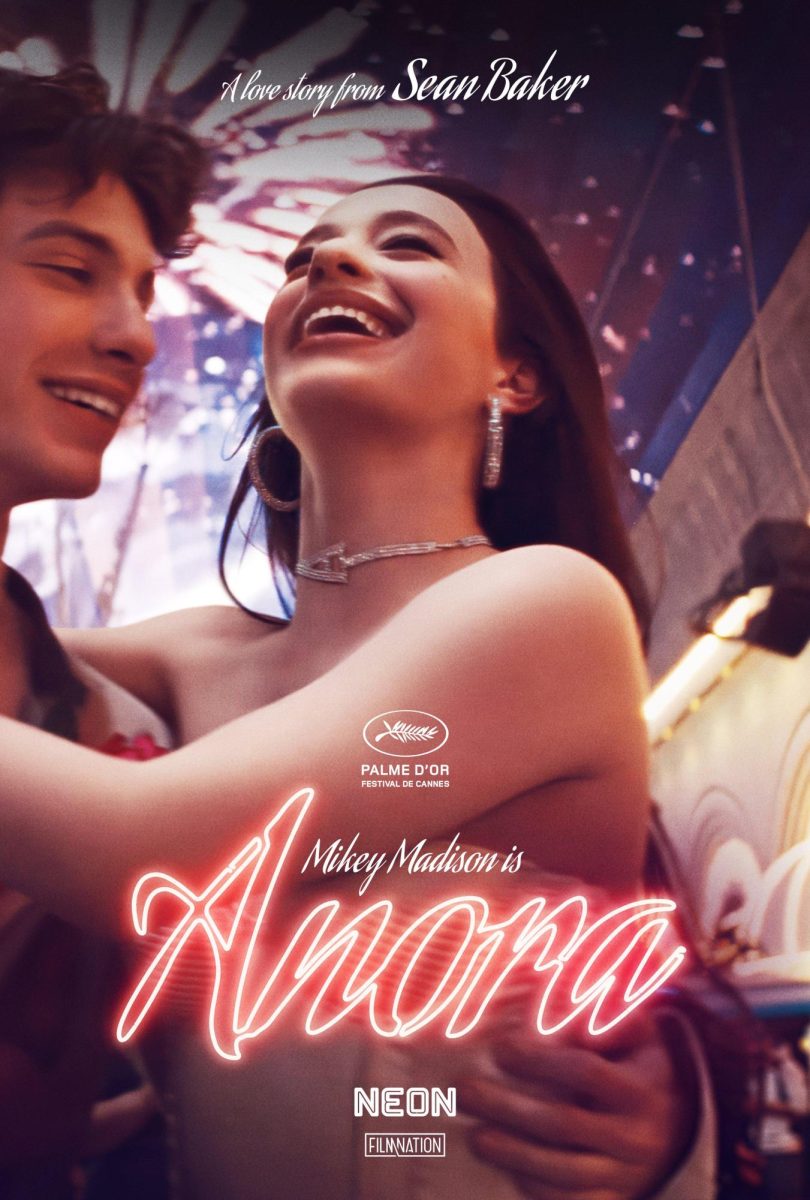
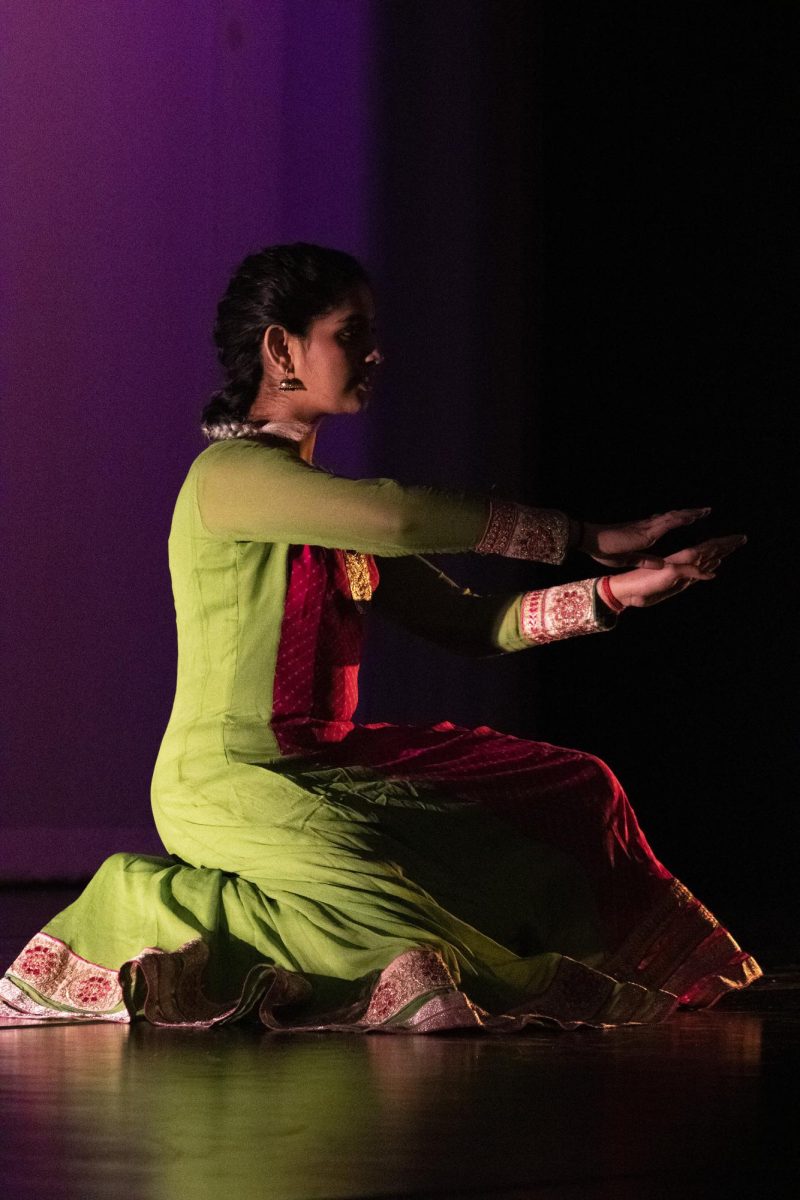

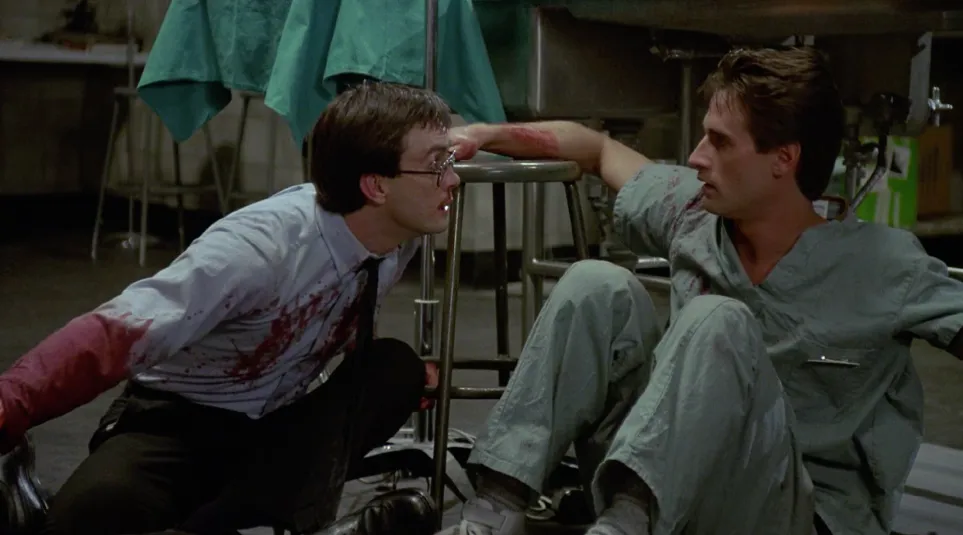
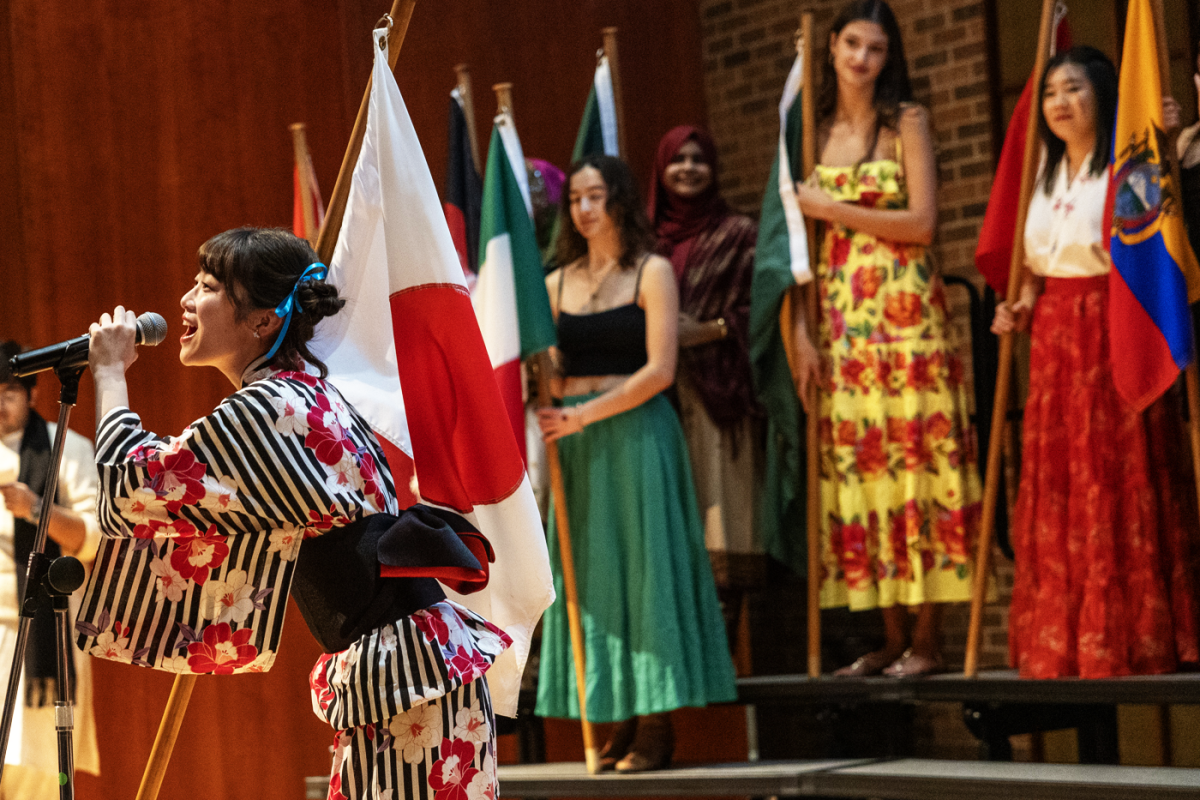
Bobbi M • Nov 21, 2021 at 2:12 pm
Very thoughtful bblog